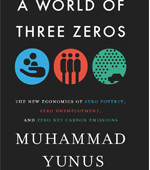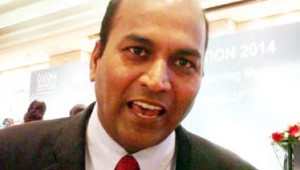Your new book is about impactful communication strategies for executives – how is it different from several other books that have addressed the same issue?
Impactful or persuasive communication is not a new subject. It is as old as our knowledge of human civilizations. Just like breathing, the only other activity we all do every moment is to communicate and influence each other.
The Vedic literature talked about the “Art of Conversation” in the 64 Kalas that one must possess 5000 years ago. Later on, philosophers and gurus like Chanakya, Plato, Aristotle, and Machiavelli taught
kings and nobles how to persuade the public opinion with rhetoric. Gradually this subject has also evolved and shaped itself according to the times.
There are countless books written on it which only demonstrates how complicated this topic is. But the real breakthrough came in the early 20th Century where management experts started looking at the use of this subject as an important aspect in charismatic leadership. Hitler used to make forceful speeches of hate and drove an entire country to war. Gandhi was the exact opposite. He explained to an entire nation the benefi ts of “ahimsa” as a means to achieve “swarajya” instead of violence and force. Both were charismatic leaders and produced exact opposite outcomes through their words. So this topic can also be very dangerous if used in manipulating the audiences.
The corporate world started looking at charismatic leadership to bring a positive change. And that is where communication plays a vital role in a charismatic or transformational leader. This subject has also been misused everywhere. Self-proclaimed trainers off er courses on communication skills in business schools or corporates just like how the Sophists did in the Greek Civilization. I also see that this subject is not even in the top 10 priorities of students in business schools.
Data analysis and hard topics like strategy and finance are still regarded to be the “true” management subjects that give jobs. And I can tell you that from my 12 years in the corporate, none of these subjects that I studied in a business school gave me any advantage. The only reason I rose higher was my ability to persuade and articulate my thoughts well.
I started teaching this subject from 1999 and realized that we have absolutely no books in India on this topic. Many of the trainers and teachers of this course take the frameworks from an American system of education which I found very strange. So I signed up for a PhD on this subject and wrote a book to give a very Indian approach and bring out a framework called the AEIOU xtraE that can be very simple to use for anybody who wants to learn. The beauty of the framework is that it can be used in interpersonal situations and even when one has to make a pitch to a VC or a presentation to a large audience.
 Another important aspect of communication and influencing is the art of knowing when to stay quiet.
Another important aspect of communication and influencing is the art of knowing when to stay quiet.
Or in simple words, knowing when to “shut up” which I have sprinkled appropriately in the chapters. Most other books talk on “how to deliver the message” and speaking skills. I have stayed clear from that.
My book just focuses on the creation of the message and the creative element and thinking power of our minds to do so. I focus on audience very heavily in all my research as an essential element of drafting a message which many books don’t. The audience has 4 simple questions they ask from their speakers “who are you, what do you want from me, why should I agree with you and what’s in it for me”. My book then gives a simple 6 step framework called AEIOU Xtra E (explained in point the below) to help them draft a really persuasive message.
What progress have Indian executives made so far in communicating better after globalization started late 1990s?
My view is that we have taken 10 steps back. We talk a lot. We gripe a lot. We ramble a lot. I don’t think we communicate at all. And it’s not our fault. If you look at our education system, we are made to memorize books to pass an exam. We are not taught to apply our minds and look at behavioral aspects of our personality while we are in a situation in the workplace.
So it is very evident that Indian managers and leaders are great in doing math or analyzing a problem where they have to apply hard subjects they learn at school. But the softer aspects like how to handle people in a meeting, how to motivate them to change, how to say few words that make sense, or how to say sorry, they are terrible. And this is where, one needs to have a very strong grounding in behavioral skills. This spans
various subjects like psychology, social sciences, humanities and also touch on confidence, personality and attitude of a person. We also are not taught to understand our audiences, empathize with them, help them to choose our words accordingly.
Our education system has created glorious rank holders who are really smart people. I am one of the
products of the same system too. But I soon realized that beyond a point, my rank and resume is not going to help me change the mind of a person in a board room. For that, I need something else. And that something else is the whole art of persuasion, charismatic leadership, interpersonal skills, executive presence and a whole lot of other topics that I focus on now. I hopefully will write more books on these topics in the coming years. My focus is to give a guide for my readers and help them become better influencers.
What top fi ve tips do you suggest in the book to produce a fine manager/ executive?
The book’s focus is not to produce fi ne manager at all. That requires a few thousand books. My book focuses on a very simple aspect which is something like this “how do I draft a message which infl uences an audience to a positive outcome”. And for this I have a simple 6 step formula
1. A – Attention – Make sure you say things or speak in a way that captures the attention of audiences at all times.
2. E- Examples – audience is very smart and looks for logic and examples in the message. Make your data interesting. Adopt storytelling styles or better ways to convey the examples.
3. I-Factor – audience will not agree with you if they don’t trust you. So demonstrate your credibility for the topic
4. O- Objective – Have a clear measurable objective of your message and make sure you mention that as early as possible. Culturally, we Indians tend to save the best part for last (comes from our food eating
habits. Save the sweet for last). But research shows that good leaders state their objectives upfront and as early as possible in their messages.
5. U-factor or connect – Show the benefits to the audiences. Tell them how your idea helps them live a better life or make more profi ts for them. Just change your mindset and instead of saying things you know, say things that the audience wants to know.
6. Xtra E or emotions – the secret sauce of a message is how it moves the audience. Make your audiences laugh, feel an emotion, give them hope and take them on a roller coaster journey. At the end of the message they should say “Wow! Or “Oh my God! I must act now” etc.
The younger generation has a different language which stems out of how they relate to power/hierarchy. What’s the new thinking and strategy companies need to work on?
I think the new generation is absolutely different than mine and the older ones. They are a lot smarter, a lot connected and very aware of the world. A 12 year old now knows things that a 40 year would in the 90s. Internet has changed everything. Companies should allow this generation to speak up.
Many companies that I consult with come to me and discuss ways of creating new leaders. When I meet
their young teams, I find that they are bubbling with anger against the management on how they feel suffocated and don’t have anyone to talk to. This generation has great ideas but there are huge walls that are imposed on them. And to me, these are very simple problems to be solved through communication. All it requires for the company to have its seniors listen to this young generation and demonstrate that their voice is valuable.
I have seen it work in one of the companies I worked with. One of the directors who had this problem tried this trick and implemented the suggestion that came from a team member who was straight out
of engineering school. The effect was magical. The productivity of the team went up, motivation levels improved and the overall feeling changed from “I don’t care” to “I want to care”.
Another important strategy for companies is to reward employees who do well in behavior skills. I am yet to find a single company that does this. They all talk about how their teams lack “proactive and strategic thinking”. But how can you encourage that thinking if you don’t even create an environment to be open and talk without the fear of being singled out.
In one of my sessions, one employee said to me “I make great presentations and enjoy talking to people, making friends and get my work done through relationships. But in my performance evaluation system, I was told that I talk a lot.” I think we need to move beyond “hard skills” and look at other areas to recognize and groom new leaders.
Anything else you want to add
I would like to call all companies to join me in this new thinking. I want their help to design cases for Indian problems of communication in their companies. India has the richest culture and knowledge base. I want to invite them to help me create knowledge for the world.
I also am very keen to take this subject to schools and undergrad colleges. It will change the way we learn and teach. It is a very exciting opportunity. So if any of your readers are keen to collaborate, I would love to hear from them.












Recent Comments